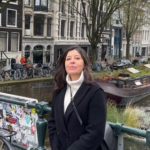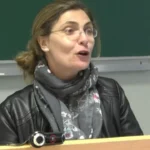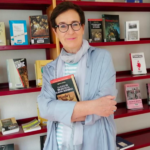Members




















In the 10th Fenix Congress (2023), our research focuses on the alliances forged by Spanish women intellectuals -writers, artists, actresses- in exile during Franco’s dictatorship. The studies included in this congress foreground the relations and communities created by exiles to bridge the distances that separated them from various groups of friends and colleagues. The groups comprise, first, their fellow-exiles, who had found a host country in the United States, Latin America, or Europe; second, the ‘insiles’, consisting of their compatriots who remained in Spain during the Francoist regime; and third, the new friends they made in the host country and from whom they would at a later stage be separated once they had relocated or returned to Spain. The contributions to this congress resort to exiled women’s private correspondence and show how the letters enable the exiles to create an epistolary space of proximity. This effect of rapprochement and collaboration, in spite of the physical distance that separated the correspondents, is the most salient feature of the alliances and communities that are studied in this congress.












